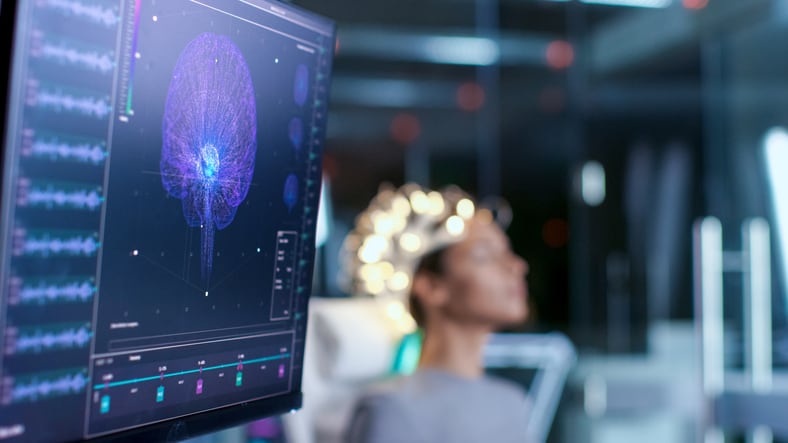Vedic Lifesciences, a contract research organization (CRO) based in Mumbai, India, recently released a sleep report that takes a deep dive into current trends in sleep studies. The CRO put dozens of sleep studies under the microscope to glean important details to inform dietary supplement companies. Insights include participant demographics, the claims being substantiated and parameters to consider when designing a clinical study.
Design
The trends report analyzed 85 clinical trials posted on www.clinicaltrials.gov over the last five years that contain the keyword “sleep” in the study title. The Vedic team assessed ingredients used for sleep, gender distribution in sleep clinical trials, current status of recruitment, trends in sample size, recommended treatment duration, in-demand sleep related claims, trending end points, biomarkers and scales.
Claims
As the report points out, there are many types of sleep disorders such as sleep apnea, insomnia, nightmares, teeth grinding, narcolepsy and restless leg syndrome are commonly associated with sleep issues. However, dietary supplement companies have to walk a fine line when making claims for sleep products.
After scouring dozens of sleep studies, the team noted the following trends:
- Sleep quality and stress
- Sleep and anxiety
- Sleep disturbance
- Sleep efficiency
- Sleep and behavior
- Improving sleep during pregnancy
- Difficulty falling asleep or staying sleep
- Sleep quality and gut microbiome composition
Ingredients
Vedic ranked functional ingredients used in sleep studies according to popularity. Here’s the top 15:
- Magnesium
- Potassium
- Lactobacillus plantarum
- Branched chain amino acids (BCAA)
- Alpha-lipoic acid
- Melatonin
- Hawthorn extract
- Lavender
- Ferrous sulfate
- Cannabidiol (CBD)
- Beetroot juice
- Kefir
- L-ergothioneine
- Lemon verbena extract
- Beta glucans
“Yesteryear’s melatonin…is no longer the game changer”
Looking into which ingredients yielded the most success, Palak Vaval, who heads up North America Sales at Vedic, said it remains unknown since not all of the studies have posted results.
“This would be an evolving answer, as more and more (interesting single and combination of) ingredients and products are developing in the sleep market. Yesteryear’s melatonin, synonymous with sleep, is no longer the game changer. Curcumin, piperine, herbs and botanical extracts, lesser-known combinations are now studied vigorously and consumed voraciously,” said Vaval.
When asked about particular attention-grabbing sleep ingredients, Kriti Chaudhary, Head Business Development at Vedic, pointed to none other than Crocus sativus L.
“Saffron never fails to amaze me. Affron is an award-winning ingredient from PharmActive. In the last five years, three studies were started for sleep-related outcomes using saffron. Gut-sleep-brain axis is being measured in one such study, currently recruiting for a study of Safr'Inside,” said Chaudhary. “Another exciting ingredient for sleep would be the different versions and combinations of CBD. Six studies were started in the last 5 years for sleep-related outcomes using CBD as the intervention. Health conditions are varied including MS, HIV, anxiety and many other serious conditions which may or may not apply to the food supplement industry.”
Sleep study rules to live by
The Vedic team summed up four key points that companies should keep in mind when designing sleep studies:
1) The study should contain both objective as well as subjective tools. Chaudhary said that objective tools will give definitive results in the form of numbers and/or figures. These may include markers like morning/ 24h melatonin level, salivary cortisol, serotonin, etc. Subjective tools will be questionnaires and scales filled out by the volunteers such as the Pittsburgh Sleep Quality Index or the Insomnia Severity Index score. This ensures the availability of both types of data at the end of the study. Sleep tracker devices are a bonus.
2) Make sure to measure the onset of effect accurately to provide a great marketing claim for the product. Sleep products need to start acting soon to avoid the use of other remedies.
3) Homogenize the population: The CRO or university conducting the study must ensure to recruit volunteers with mild to moderate sleep quality issues but having similar BMI, age and physical activity levels. Chaudhary said that students, for instance, have a very erratic stress graph. They tend to be more stressed out during exams and lesser during holidays. Thus, the best type of people to recruit would be working individuals with a stable lifestyle.
4) Crossover vs parallel placebo-controlled: If conducting a crossover study, the washout period should be short to avoid the use of other medications for insomnia. Chaudhary said a parallel placebo-controlled study would be ideal if the population is highly homogenized and food diaries are maintained. She added that there should also be strict accountability of rescue medication usage.
Key takeaways, according to Chaudhary
More women need to be studied: “The only studies done on sleep quality in women were related to pregnancy. There are a million other female-only factors that affect sleep. Examples include but are not limited to urinary tract infections, menstrual cramps, infertility-related stress, amenorrhea, PCOS and postpartum conditions.”
Sleep is multifactorial: “‘Sleep’ is no longer a simple concept. It’s becoming more and more complicated with too many factors affecting it like gastric issues, hormonal troubles, age-related factors, and of course stress.” With this in mind, Chaudhary said companies should use an interconnected study design. “Since so many factors affect sleep, clinical trials need to be designed strategically. They must not only measure sleep-related outcomes, but also other aspects like quality of life, physical activity levels, diet, and lifestyle."
One study is not enough: “Two studies are recommended, for sleep, based on past trends. The first one should be a pilot study to gauge the potential of the product and check any signs of effect. The 2nd study can be a larger confirmatory study, with more objectives included. This can help create a solid product backed by high-quality science."
It’s a competitive marketplace: “A large variety of offerings are available in the sleep category ranging from probiotic strains to CBD to botanical extracts. The key is to differentiate your offering using well-informed positioning statements backed by top-quality science.”

